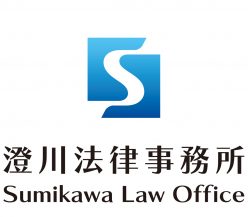 What can you do when the other party in Japan doesn’t make payments through negotiations?
What can you do when the other party in Japan doesn’t make payments through negotiations?
Under Japanese Law, it is illegal to personally force the other party to pay the money for such cases.
However, you still have some options. There are court procedures designated to handle such cases. The measures to forcibly collect money from the other party’s assets are called “Court Enforcement”.
While the Court Enforcement can be immediately carried out as “Foreclosure” when a security (guarantee) is provided, here I would like to discuss exclusively about the regular claims with no security.
1 What is required for the “Court Enforcement”?
Just because you have claims doesn’t mean that the Court Enforcement can be immediately carried out. To begin with, you are required to officially receive the court’s stamp of approval for the fact that “you actually have claims and are entitled to claim them against the other party”.
One of the major procedures to get the stamp of approval from the court is to go through a court procedure and receive a “Court Decision”. In the case of monetary claims, you will receive a written decision stating that “the other party is ordered to make a payment of XX yen”. This is called a “Tile of Debt”.
In addition to court procedure given as an example above, a “Title of Debt” can also be obtained through the following procedures. (Only major procedures are listed below)
・ Court Procedures (Court Decision, Court’s Record of Settlement)
・ Demand for Payment
・ Execution Deed
・ Mediation(Record of Mediation)
・ Decision made in a foreign court(Required to obtain execution judgment in Japan)
2 How is the “Court Enforcement” is carried out?
In the case of monetary claims, the Court Enforcement will be carried out by forcibly selling the other party’s assets and converting them into cash in order to collect the money. A petitioner is therefore required to specify the assets owned by the other party to some extent. Keep this mind before filing a case, as the Court Enforcement cannot be carried out if the other party’s assets cannot be specified.
1) Real Properties and Cars etc. (Court Enforcement against Real Properties)
Assets subject to Court Enforcement will be seized and sold, and the claims will be collected by the proceeds of the sales.
【Required Documents】
Registry of Real Property,Vehicle Inspection
Certificate etc.
【Note】
Depending on the value of the assets, a deposit ranged from several
hundred thousand yen to two million yen is required.
2) Salary,Saving etc.(Court Enforcement against Credits)
Salary, savings, accounts receivables will be seized and the credits will be collected by receiving payments from a person obligated to make payments (such as an employer or a bank)
【Required Information】
Place of work,Name of the bank which owns the bank account, clients of the other party, etc.
3) Assets other than real properties (Court Enforcement against Movable Properties)
Assets except real properties or cars will be seized and sold, and the claims will be collected by the proceeds of the sales.
【Required Information】
Presence and Location of the movable properties with cash value.
3 Flow Chart of the Court Enforcement
- File for a Court Enforcement
- Order of Seizure
- Seizure
- Actual Collection
- Collection of Credits(Court Enforcement against Credits)
- Selling Procedure (Real Properties and Movable Properties)
- Cash Dividend
These are the brief explanation about Court Enforcement in Japan. However, please note that depending on the types of assets subject to the Court Enforcement or the amount of receivables, the case (such as non-monetary claims) or whether there is a security, the manner of filing the Court Enforcement will vary. Please feel free to contact us for more detailed advice.

